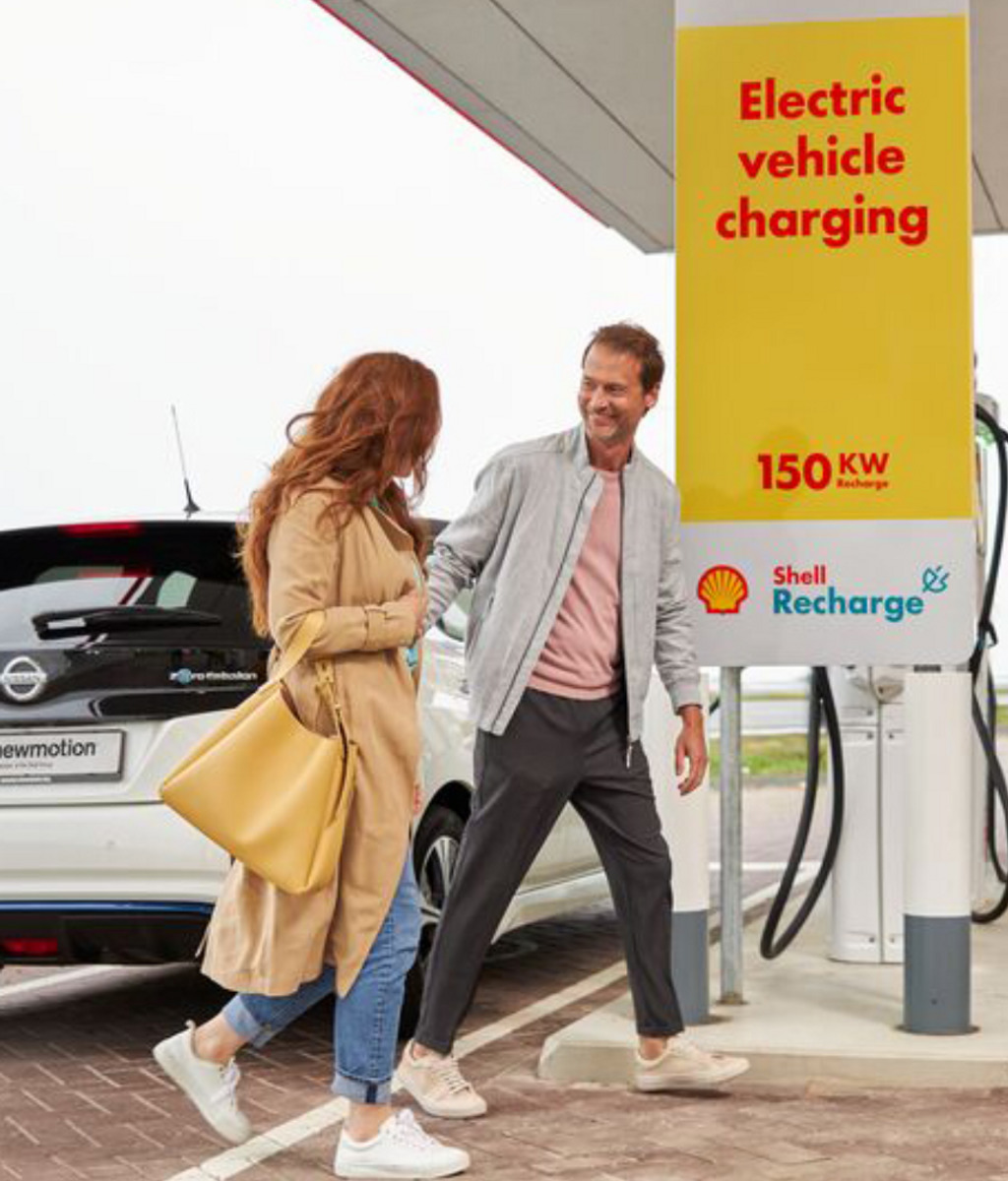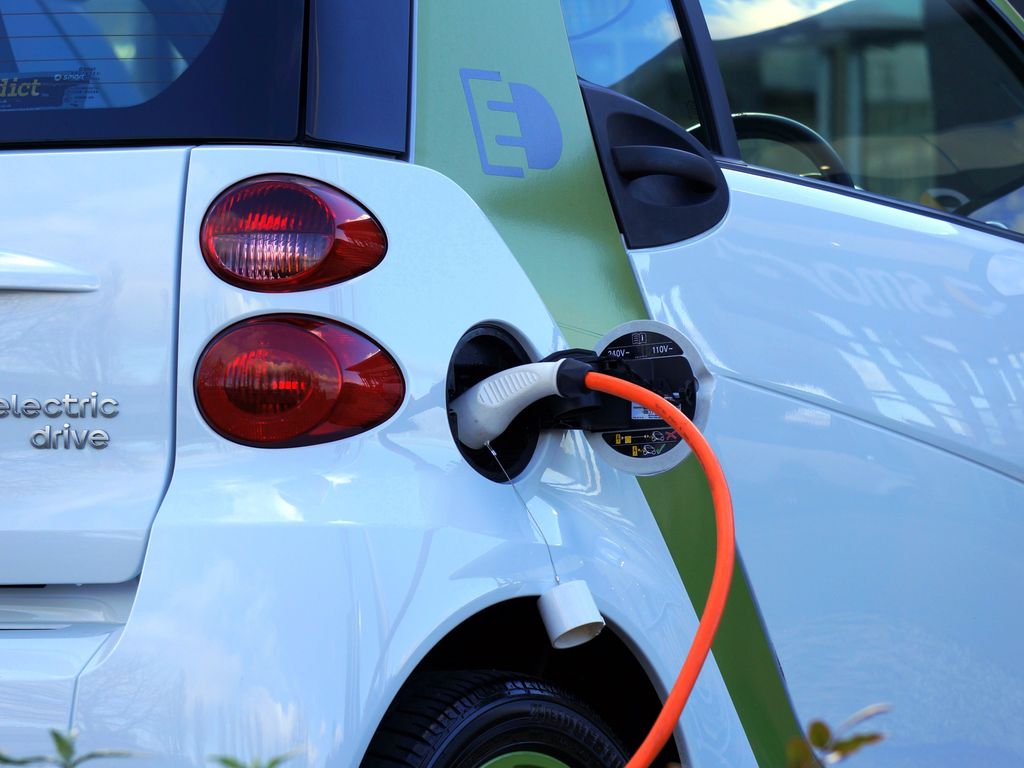4 Mins Read
Unveiling its new plans for reaching its goal of being carbon neutral by 2050, global energy company Shell recently announced its plans to roll out 500,000 electric charging stations in just four years.
Building its brand on the search for oil and natural gas in Africa, South America, and the North Sea, the company mentioned that it plans to increase its existing network of 60,000 electric vehicle charging stations to about 500,000 by 2025.
The company also mentioned that it will invest US$100 million annually in ‘nature-based solutions’ that protect or redevelop forests, wetlands, and grasslands that can capture carbon from the air.
Apart from this, Shell also plans to eliminate seven refineries and reduce the production of gasoline and diesel fuel by 55% over the next decade.
In a press release seen by Green Queen, Royal Dutch Shell CEO Ben van Beurden said how important it is to transition to a new sustainable way of working. “Our accelerated strategy will drive down carbon emissions and will deliver value for our shareholders, our customers and wider society. We must give our customers the products and services they want and need – products that have the lowest environmental impact. At the same time, we will use our established strengths to build on our competitive portfolio as we make the transition to be a net-zero emissions business in step with society. Whether our customers are motorists, households or businesses, we will use our global scale and trusted brand to grow in markets where demand for cleaner products and services is strongest, delivering more predictable cash flows and generating higher returns.”

And earlier this year Shell acquired Ubitricity, a charging solutions company in the U.K and back in 2019, Royal Dutch Shell bought Greenlots, a Los Angeles-based developer of electric vehicle charging and energy management technologies, and with these acquisitions, Shell is moving from gas stations to charging stations.
We must give our customers the products and services they want and need – products that have the lowest environmental impact. Whether our customers are motorists, households or businesses, we will use our global scale and trusted brand to grow in markets where demand for cleaner products and services is strongest, delivering more predictable cash flows and generating higher returns
Ben van Beurden, Chief Executive of Royal Dutch Shell
In a statement at the time of the Greenlots acquisition, Shell executive VP for New Energies Mark Gainsborough said that this latest investment in clean energy sources is crucial “As our customers’ needs evolve, we will increasingly offer a range of alternative energy sources, supported by digital technologies, to give people choice and the flexibility, wherever they need to go and whatever they drive. This latest investment in meeting the low-carbon energy needs of US drivers today is part of our wider efforts to make a better tomorrow. It is a step towards making EV charging more accessible and more attractive to utilities, businesses and communities.”
David Elmes, a professor at Warwick Business School in England and head at the Global Energy Research Network, said that while Shell’s plan seems to fit all the boxes, they raise the question of whether the company will be able to make the shift financially profitable enough for shareholders used to generous dividends as the plan bets on new technologies such as capture carbon and storage that would require a lot of investment.
The environmental organisation Greenpeace also pointed out that Shell did not say it would cut production outright, just let it fade as the global economy moves toward other forms of power, like renewable energy. The NGO further called out the company’s reliance on tree-planting to offset carbon emissions as unrealistic.
A recent study found that air pollution from fossil fuels killed 18% of the world’s population meaning that burning fossil fuels is almost as deadly as cancer. Apart from the effects on humans, the cost of fossil fuels is estimated to cost $500 billion per year by 2090 in the U.S unless things change and according to world scientists, only by cutting out fossil fuels in half by 2030 and eliminating all fossil fuels by 2050, we stand a chance at saving our planet.
With these predictions, people and companies around the world are understanding the importance of clean energy sources and using electric vehicles. New U.S. President Joe Biden is also committed to replacing the government’s entire federal fleet with electric vehicles.
Several companies have emerged and are signing deals to encourage more offerings in this space. For instance, the electric vehicle charging network ChargePoint merged with special purpose acquisition company Switchback Energy Acquisition Corporation, with a market valuation of US$2.4 billion.
In January, EVgo, an owner and operator of electric vehicle charging infrastructure, merged with the SPAC Climate Change Crisis Real Impact I Acquisition for a valuation of US$2.6 billion. Riverstone Holdings, one of the leading names in private equity energy investment, placed its own bet on the charging space with an investment in FreeWire with the company already raising US$50 million in a new round of funding earlier this year.
Robert Tichio, a partner at Riverstone in charge of the firm’s ESG efforts said: “One of the reasons we find electrification of mobility so attractive is because it’s not if or how, it’s when. Penetration rates are incredibly low, compare that to Norway or Northern Europe. They have already achieved double-digit percentages. The demands on capital in the electrification of transport will begin to approach three-quarters of a trillion annually.”
Lead image courtesy of Mike/Pexels.




